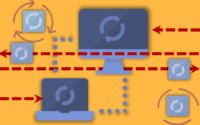
Exploring Professional Discourse Using Data from Online Discussion Forums: Showcase of Three Methods
This report offers an overview of methods investigating educators’ professional discourse. The selected three methods are text-mining focused on content words, text-mining with function words, and social network analysis. The first method allows summarization of text data based on focal points in corpora. The second type of text-mining leverages predetermined categories of words to investigate […]












